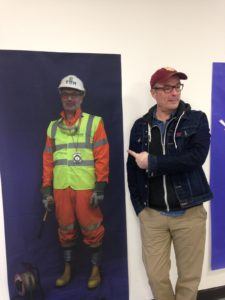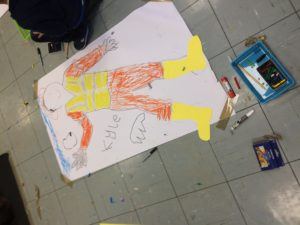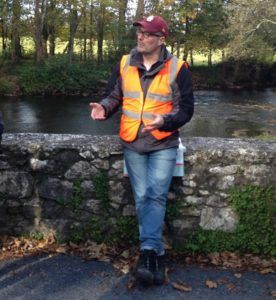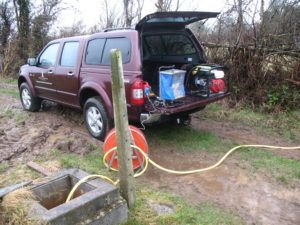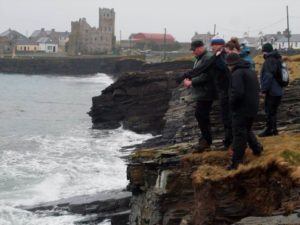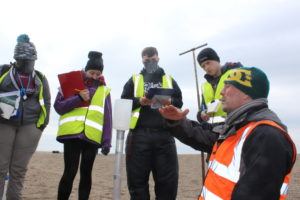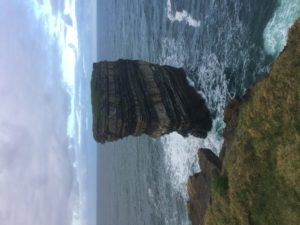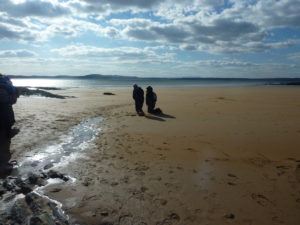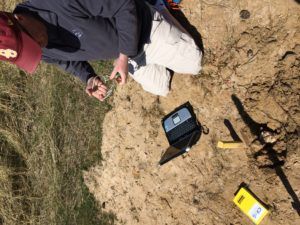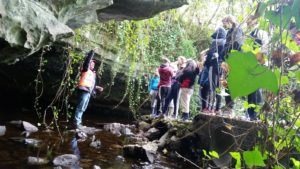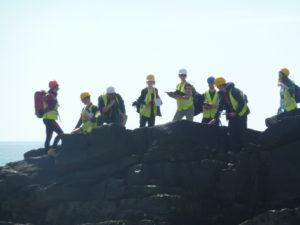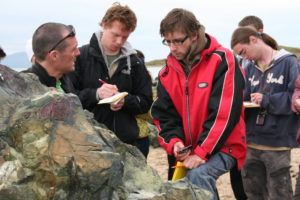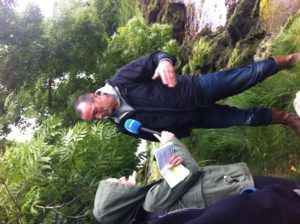Profile
Tiernan
My CV
-
Education:
St Dominic's Primary School Dundalk. De La Salle Secondary School Dundalk. Trinity College Dublin. University of Minnesota-Duluth. University of Wisconsin-Madison. NUI Galway.
-
Qualifications:
BA in Natural Sciences, TCD. MSc in Hydrogeology, UW-Madison. PhD in Hydrogeology, NUI Galway
-
Work History:
Dublin, New York, Minneapolis, Duluth, Madison, all over Ireland, Galway.
-
Current Job:
Lecturer
-
About Me
I'm a hydrogeologist: basically a geologist who gets wet a lot
-
Read more
Water is all around us on the Earth and we need it to sustain life and to support life. Water is also part of the planet and is intimately associated with rocks and the soil. Understanding water in, on and above the ground means that we should also understand the ground, and how the water and ground interact with each other.
I have a science degree from Trinity College Dublin, where I focused on physical geography. I went to the United States where I studied and worked for a number of years, and I completed an MSc in Hydrogeology (groundwater) at the University of Wisconsin-Madison. When I came back to Ireland I worked as a groundwater consultant, which meant that I was either getting rid of water where there was too much of it, or finding water where there was too little. This led me into doing a PhD and to starting work at NUIG. -
Read more
By training I’m a hydrogeologist, but my job is lecturing at NUI Galway.
I’m interested in water in, on and above the Earth, and because we all need water to survive and thrive I’m interested in trying to better understand how water and the Earth interact. Hydrology is the study of water on the Earth and the stuff I’m mostly interested in is the water beneath the Earth’s surface. This means that I’m just interested in water, because from a geology perspective all of the water on, in and above the planet is all the same stuff; there’s just more or less things dissolved in it for different lengths of time.
The Earth is about 4.6 billion years old, and it has been relatively stable for more than 3 billion years (the first bit was quite wild). Since then, the outer shape of the planet has changed dramatically, and continues to do so. Continents have been created and destroyed, they have collided with each other, some have sunk under others, and the oceans have split and opened. And all of this still continues: the Atlantic is only about 100 million years old (only!) and is getting wider each year; India is still colliding with Asia, pushing the Himalayas up each year (and erosion brings them down at the same rate they are rising). Through all of this activity the total amount of water on the planet hasn’t changed much – from a water perspective the Earth is a closed system – but where we find the water changes all the time. Right now, in 2018, most of the water on the planet is found in the oceans, there is a small amount in rivers and lakes, some in the soil, some in the atmosphere, lots locked up in glaciers and ice packs, and lots in the ground. As recently as 26,000 years ago – at the height of the last ice age – much more of the water was locked up in ice, which meant that less was in the oceans, which meant that sea levels were a lot lower than now. You could have walked from Galway to the Aran islands on dry land, you could have walked from Wexford to Wales, and from Dover to Calais. Go back 500 million years and almost all of the water was tied up in ice, and the planet looked like a giant snowball.
The water moves around in a global water cycle and it modifies the ground it flows across and in, and it is modified by that ground. The water is part of the ground and part of the rocks we see all around us. And, if we look inside, we’re mostly water too – and our bones and our blood and muscles and tissues are built from the elements that make up all the rocks and minerals around us. Have a drink of water, have a shower, go for a swim in the sea: you’re drinking, washing and swimming in dissolved rocks, and we are largely made of dissolved rocks too.
We rock. -
My Typical Day
Teach, meet students, work on research projects, do administration work
-
Read more
Typically I’ll be giving lectures (which are usually about 50 minutes long) and running practicals and labs for those courses. I teach 2nd, 3rd and 4th year science students, 3rd and 4th year engineering students, and MSc students. What I do is very practical, so I try to have field trips for each course. Some of these trips are one-day trips, some run over weekends, and some run for 7-10 days.
Teaching is a big part of my job, and I’m involved in learning about new teaching methods and technologies, and my students are frequently my guinea-pigs as I try out new things on and with them. I’m doing some research on improving teaching methods, and I’ve been working with our students to assess their take on our courses and to figure out how students learn best.
More of my research is about water, though. I’m part of a national research group called iCRAG (Irish Centre for Research in Applied Geosciences – have a look yourself: http://www.icrag-centre.org/) and one big area we’re looking at is the occurrence and distribution of metals in groundwater in Ireland. Get a bottle of water and look at the label on the side, and you’ll see a general breakdown of the chemistry (concentrations of calcium, magnesium, chloride and other elements are given). Even though there are more than 100 elements in the periodic table, only 12 of the elements are really abundant in rocks (and therefore in soils, and in water). When we examine a water sample we’re curious not only about how much sodium, chloride and calcium (etc) is in the water, we’re also really interested in all the other things that are in there too, but usually at tiny, tiny concentrations. Irish water naturally has iron, zinc, copper, lead, arsenic, cadmium, nickel and lots of other stuff in it, but, lucky for us, these are usually present in really really small amounts (at the parts per billion or parts per trillion level) and they have no effect at all on our health. We think of the water sample as the last page of a book, and we try to figure out all of the stories that came before us taking the sample from the ground: how old is the water (or more particularly, how long has it been underground), what rocks has it come in contact with, how deep below the surface did it get, what pathways through the ground did it take. We can’t always answer all of these questions, but it is a lot of fun trying to figure out reasonable answers. -
What I'd do with the prize money
Not sure how much I'd need, but I want to develop a website for a schools-based catchment mapping project
-
My Interview
-
How would you describe yourself in 3 words?
Dundalk FC fan
What did you want to be after you left school?
Musician, footballer
Were you ever in trouble at school?
No, too lazy to get in trouble
Who is your favourite singer or band?
Bob Dylan
What's your favourite food?
Pizza
What is the most fun thing you've done?
Sledded down a glacier in Wyoming
If you had 3 wishes for yourself what would they be? - be honest!
More time, better guitar player, better left foot
Tell us a joke.
Ever since Kylie cancelled her concerts it's all I can think about. I just can't get it out of my head.
-
-
Work photos:
